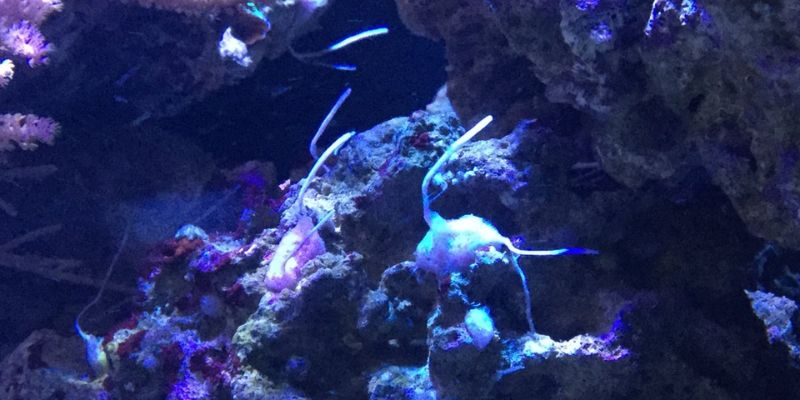The presence of invasive species like the pineapple sponge presents a significant difficulty for aquarists when it comes to keeping a reef tank in pristine condition. This article’s goal is to help you to “How Do I Get Rid of Pineapple Sponge in My Reef Tank?” by providing useful information and efficient methods. If you take care of your coral reefs like this, you can help the marine ecosystem around them thrive.
Pineapple Sponge
The pineapple sponge, or Callyspongia vaginalis as it is known in the scientific community, is a typical marine sponge. Although its bright yellow color and complex structure may catch your eye, it actually poses a threat to the harmony of your reef tank. Since the pineapple sponge is a filter feeder, it may cause coral tissue recession and growth inhibition by outcompeting corals for food.
Pineapple Sponge in Reef Tank
Identifying the existence of pineapple sponge in your reef tank is the first step in efficiently dealing with the problem. Keep an eye out for the following telltale symptoms that you might be dealing with pineapple sponge:
Atypical expansion: Keep an eye out for any strange behavior or changes in the appearance of your corals and other occupants. Pineapple sponges can be found fastened to aquarium glass, coral skeletons, and live rock.
Discoloration in the yellow: If you have a reef tank, keep an eye out for any bright yellow spots or structures that resemble sponges. Colonies of pineapple sponges may look like this.
Deterioration of coral reefs: There may be nutrient competition between pineapple sponge and your corals if you notice tissue recession, limited polyp extension, or stunted growth.
How Do I Get Rid of Pineapple Sponge in My Reef Tank?
Now that you know pineapple sponge is in your reef tank, you can take steps to remove it. To successfully eradicate this bacterium, try the following methods:
Method 1: Expunging By Hand
First, using a soft brush or tweezers, remove any obvious colonies of pineapple sponges. Avoid disturbing the reef tank’s natural equilibrium or damaging adjacent corals. The residents of the tank will be less stressed if this operation is carried out during routine maintenance.
Method 2: Improving Water Quality
If you want to discourage the growth of pineapple sponges in your reef tank, you should maintain excellent water quality. Keep the water at the right temperature, saltiness, acidity, and nutrient concentration. Perform regular checks using accurate testing equipment, and make modifications as appropriate.
Method 3: We’ll filter better
Increasing the efficiency of your reef tank’s filtration system can lessen the nutrient load and slow the development of pineapple sponge. To efficiently get rid of organic waste and stop nutrient accumulation, you may want to throw in some extra filtration equipment like protein skimmers.
Method 4: Release Native Predators
Pineapple sponges have natural predators among some reef-safe species. For example, pineapple sponge is a food source for certain wrasses, nudibranchs, and sea slugs. Before adding any predators to your reef tank, make sure you’ve done your research to make sure they won’t harm the other fish.
Method 5: Quarantining New Additions
Establish a quarantine procedure for all new additions to your reef tank to avoid introducing pineapple sponge or other unwelcome creatures. Reduce the likelihood of an infestation by keeping new corals, live rock, or other tank occupants in a separate quarantine tank for a set period of time before adding them to the main tank.
Method 6: Routine Upkeep and Monitoring
If you want to keep pineapple sponges from recolonizing your reef tank, you need to stick to a regular maintenance schedule and check in on your tank often. Always be on the lookout for new infestations or signs of regrowth, and respond swiftly if required.
How to Preserve a Reef Tank?
If you have pineapple sponge in your reef tank and want to get rid of it, follow the aforementioned procedures. Keep in mind that a healthy and thriving reef tank environment requires preventative care, routine maintenance, and a keen eye for early symptoms of infestation.


cytotec 200mcg tablet – buy diltiazem pills purchase diltiazem without prescription